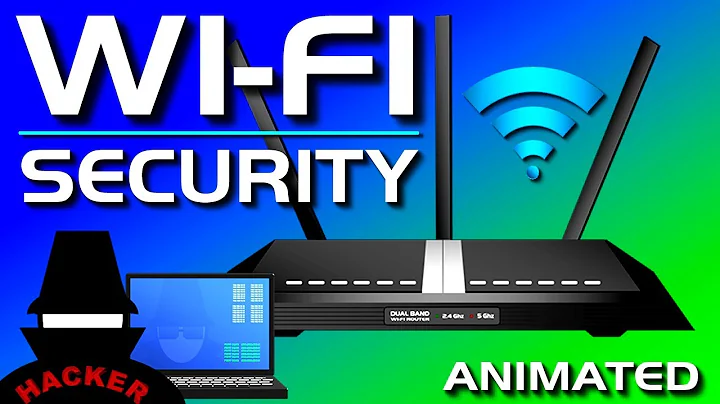What are the technical requirements for a WPA-PSK passphrase?
Solution 1
What exactly is the criteria for "ASCII-encoded" here? Just that they must be 8-bit chars with the high bit unset? Are non-printable characters allowed?
Wikipedia's Wi-Fi Protected Access says the WPA-PSK passphrase is 8 to 63 printable ASCII characters, and includes this reference as a footnote:
Each character in the pass-phrase must have an encoding in the range of 32 to 126 (decimal), inclusive. (IEEE Std. 802.11i-2004, Annex H.4.1) The space character is included in this range.
Come to think of it... Does my approach of randomly generating a passphrase make any sense? Would it be better to just generate 64 random bytes and use that as a key?
I think I'll still just generate 256 bits using a secure RNG...
Does your wireless router and every device you want to connect to your wireless network let you manually enter the WPA-PSK key as 64 hex characters? If not, then you may have to use an ASCII passphrase to be able to enter it in all of your devices.
Solution 2
From http://www.xs4all.nl/~rjoris/wpapsk.html - "WPA key calculation - From passphrase to hexadecimal key Details of the Calculation":
For WPA-PSK encryption, the binary key is derived from the passphrase according to the following formula:
The function PBKDF2 is a standardized method to derive a key from a passphrase. It is specified in RFC2898 with a clear explanation on how to compute it. The function needs an underlying pseudorandom function. In the case of WPA, the underlying function is HMAC-SHA1. SHA1 is a function that computes a 160-bit hash from an arbitrary amount of input data. It is clearly explained in RFC3174. HMAC is a standardized method to turn a cryptographic hash function into a keyed message authentication function. It is specified in RFC2104.
To summarize, the key derivation process involves iterating a HMAC-SHA1 function 4096 times, and then doing that again to produce more key bits. The amount of computation involved is equivalent to computing the SHA1 hash over 1 MByte of data. Perhaps that explains why the Javascript on this page is so slow.
As for your question: Does my approach of randomly generating a passphrase make any sense? Would it be better to just generate 64 random bytes and use that as a key?: Either one would be very strong, as long as you used all kinds of symbols, numbers, and random alphabet characters in your random bytes passphrase. The way I look at it: both of them (generated or random) would be impossible to guess/hack...
Related videos on Youtube
asveikau
Updated on September 17, 2022Comments
-
asveikau almost 2 years
I was thinking of generating a WPA-PSK passphrase, and I see in the OpenBSD manpage for
wpa-psk(8):The passphrase must be a sequence of between 8 and 63 ASCII-encoded characters.What exactly is the criteria for "ASCII-encoded" here? Just that they must be 8-bit chars with the high bit unset? Are non-printable characters allowed?
Come to think of it... Does my approach of randomly generating a passphrase make any sense? Would it be better to just generate 64 random bytes and use that as a key?
-
asveikau over 13 yearsHm. So it would seem based on my reading of the RFC that the PBKDF2 function doesn't depend on it being printable ASCII characters, and should do fine with binary data. I think I'll still just generate 256 bits using a secure RNG... (I'm not so confident it would be impossible to guess though. There are small odds that this will end up generating something that happens to collide with a weak passphrase. :P)
-
asveikau over 13 yearsFrom RFC2898 cited by @studiohack - Throughout this document, a password is considered to be an octet string of arbitrary length whose interpretation as a text string is unspecified. In the interest of interoperability, however, it is recommended that applications follow some common text encoding rules. ASCII and UTF-8 [27] are two possibilities. (ASCII is a subset of UTF-8.)
-
asveikau over 13 yearsAlso, it seems that OpenBSD, Linux, Windows, and Mac OS X all support using hex keys. The only problem I have encountered is the Maemo UI not liking it -- but the XML file that backs the configuration supports it.
-
asveikau over 13 yearsOK, I see the part of 802.11i-2004 that says that. You're right.




